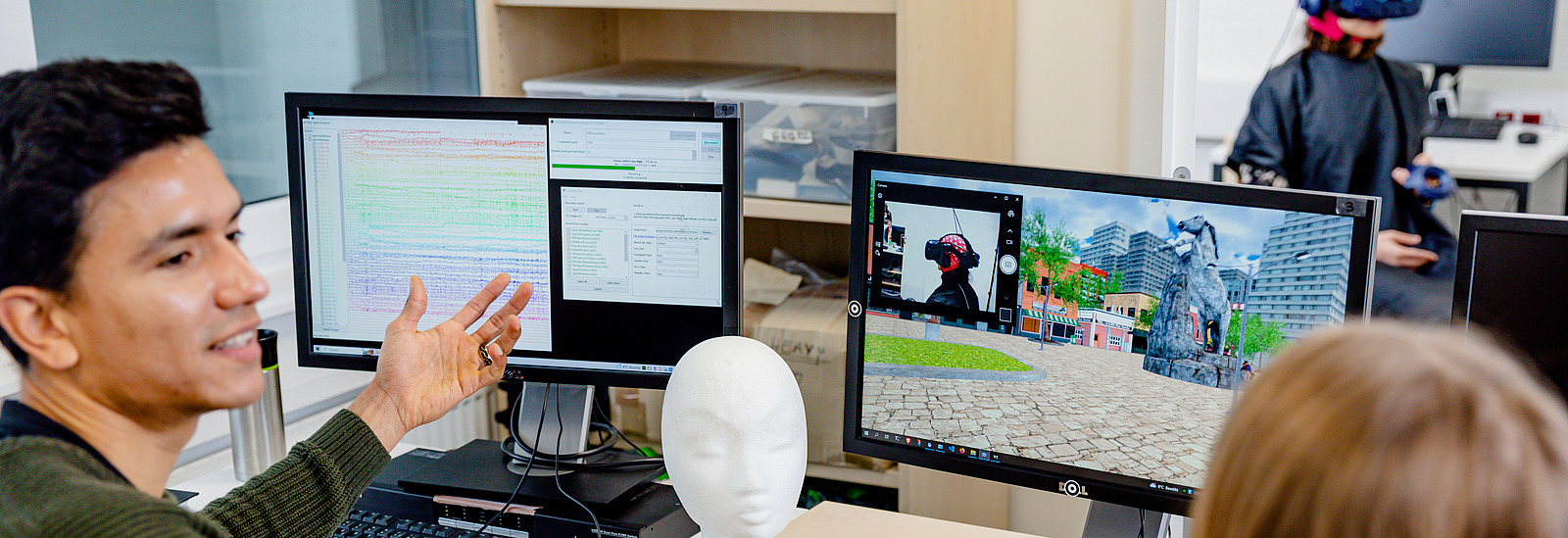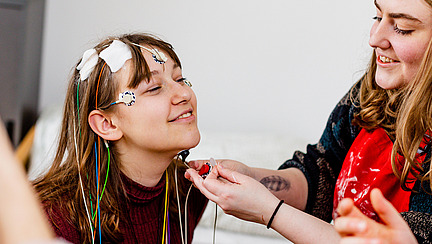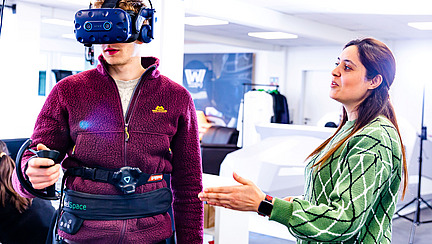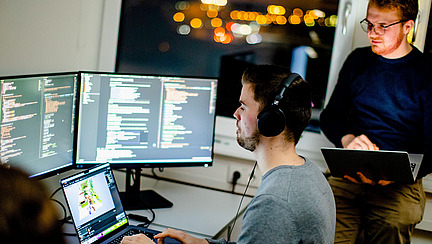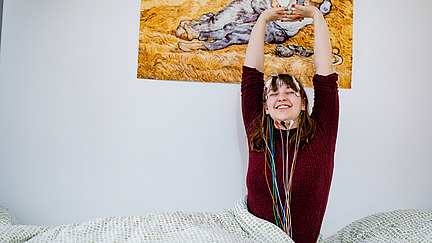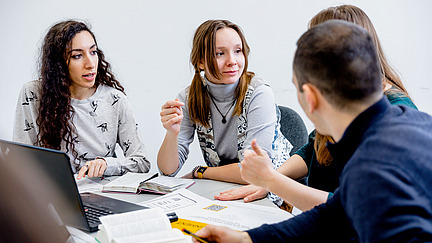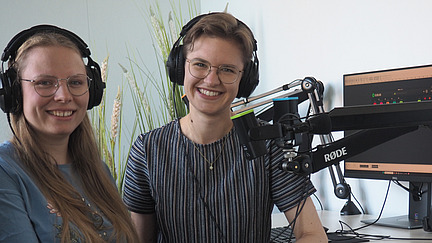Studies and Research
Early research experience in an excellent research environment - this is one of the special features of the Cognitive Science degree program at Osnabrück University. Students come into contact with research as early as the Bachelor studies, whether in the form of volunteer hours or as assistants in experiments, and often as an essential part of their final theses. Through their involvement in student initiatives, students actively contribute to scientific discourse and acquire valuable skills for their careers.
Doctoral studies
PhD students’ projects constitute an essential part of research at universities. If you are interested, we recommend taking a look at the PhD page of the Institute of Cognitive Science ( Promotion: Kognitionswissenschaft), as well as the page of the Faculty of Human Sciences ( Promotion: Fachbereich Humanwissenschaften)).
